Behind her brave decision: A York County woman's preemptive battle against breast cancer
A year ago, Tiffany Hunter underwent a surgery that was not for the faint of heart to reduce her risk of getting breast cancer.
She decided to have prophylactic skin and nipple sparing bilateral total mastectomies after several of her family members battled breast cancer over the years. Hunter watched an aunt die from the disease when she was a young girl.
Hunter underwent genetic testing and found she was at higher risk of developing breast cancer.
Now, the wife and mother of five children wants to encourage other women who are at risk for breast cancer to consider their preventative options.
"I just want women to feel empowered that they don't have to wait," she said. "...They can take control of this."
Young aunt succumbs to breast cancer
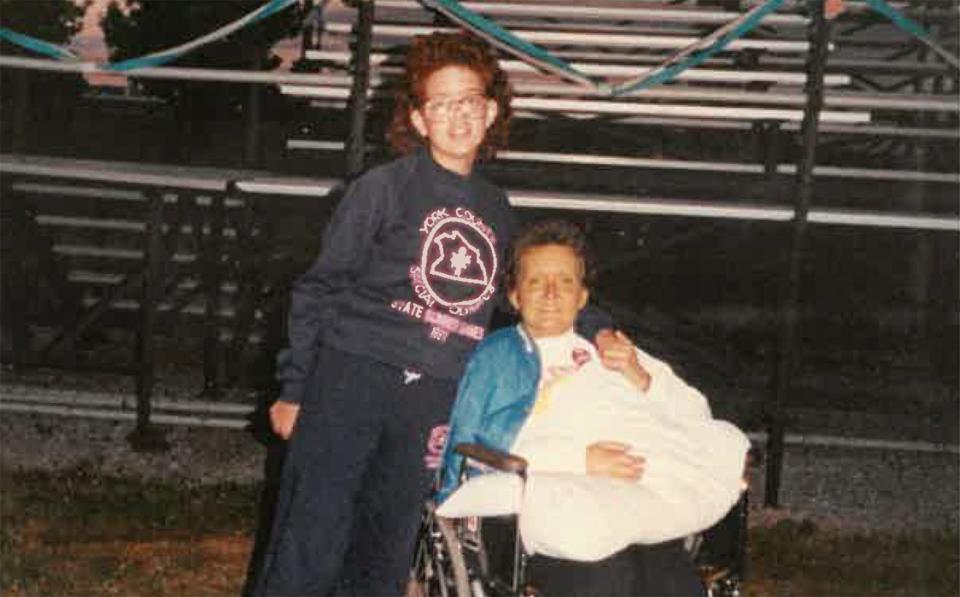
Hunter was a young girl when her aunt, Joan Bunnell, fought breast cancer and succumbed to it.
Her aunt, who was in her 30s, was diagnosed and underwent treatment in the late '80s and early '90s when not as much was known about the disease, Hunter said.
Bunnell shared her journey with the York Daily Record in September 1990 in hopes of educating other women about the importance of early detection.
"I'm really on the bandwagon for early detection," she said. "If it's going to help someone else, it's something."
Bunnell underwent a radical mastectomy in 1988 and chemotherapy for six months. She was given a clean bill of health.
But in March 1990, doctors found that she had a recurrence, prompting more operations and treatment.
At the time of the interview, Bunnell explained that she was going to Johns Hopkins Oncology Center to have diseased bone marrow replaced with clean bone marrow in hopes of ridding her body of the disease.
The experimental treatment wasn't successful.
She died June 29, 1991 at the age of 38.
"I watched her, you know, die a pretty horrific death and really go through some terrible things," Hunter said.
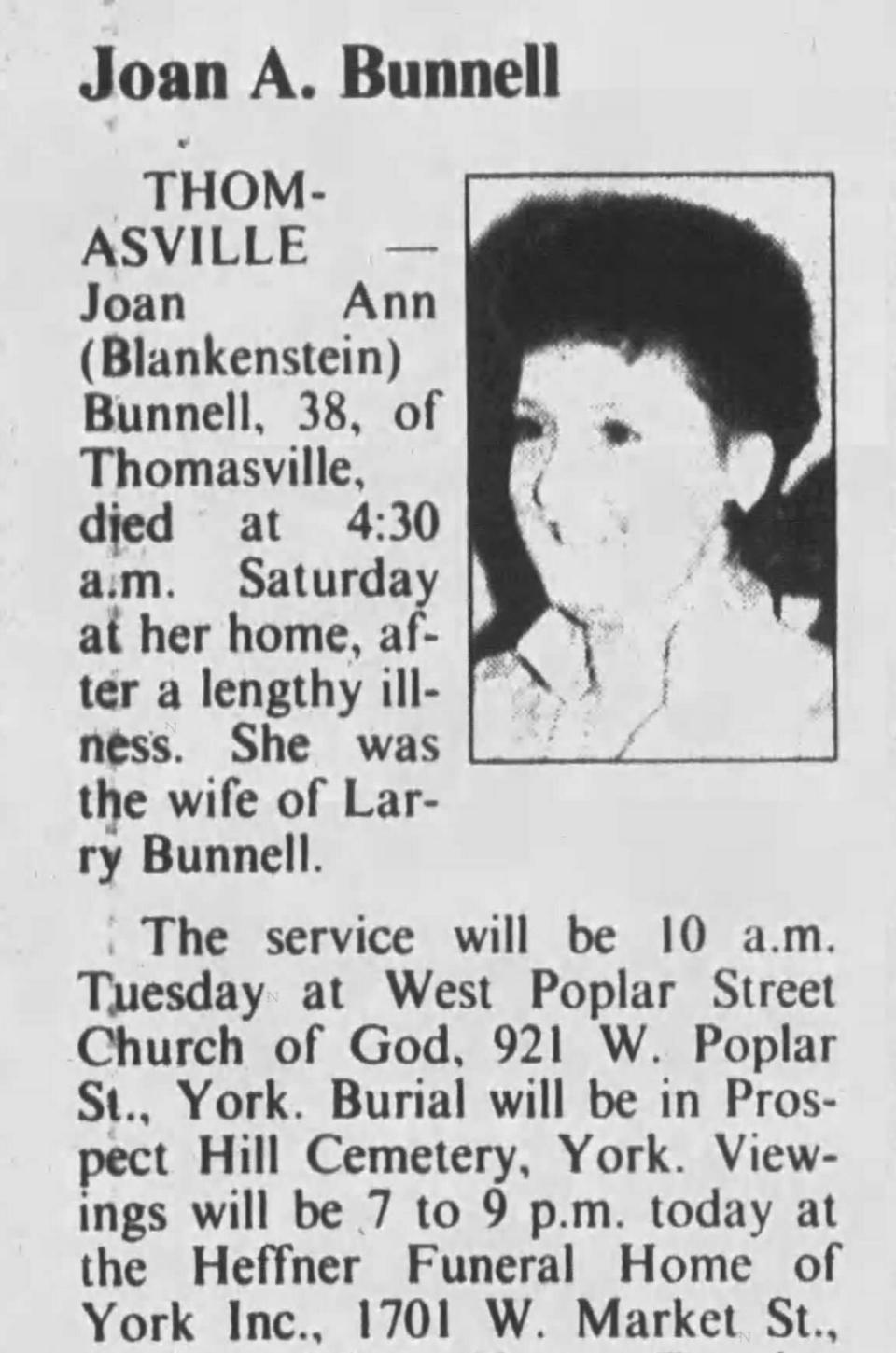
Hunter's mother is diagnosed with breast cancer
Her aunt's death affected the family, but life moved on.
Hunter became an oncology nurse, driven by what her aunt had gone through, and worked at Cancer Care Associates of York.
In 2008, while Hunter was pregnant with her first child, her mother, Jean Firestone, found a lump in her breast. She had lumpy breasts, but this one felt different. She remained quiet about it until after her daughter delivered the baby.
Firestone underwent a biopsy and later received a call to come in to the doctor's office. Her husband, Sam, Hunter and the baby went to the appointment. It was cancer.
Firestone had a lumpectomy followed by radiation and chemotherapy.
"We got on the other end of it, and we were sailing free," her daughter recalled.
Then, in 2015, Firestone thought she had pulled a muscle in her chest and went to the doctor. She was diagnosed with cancer a second time. She had been on Tamoxifen, a drug used to help prevent the disease.
This time, Firestone said, she opted for a double mastectomy and reconstruction surgery.
"I wasn't going to go through this anymore," Firestone said.
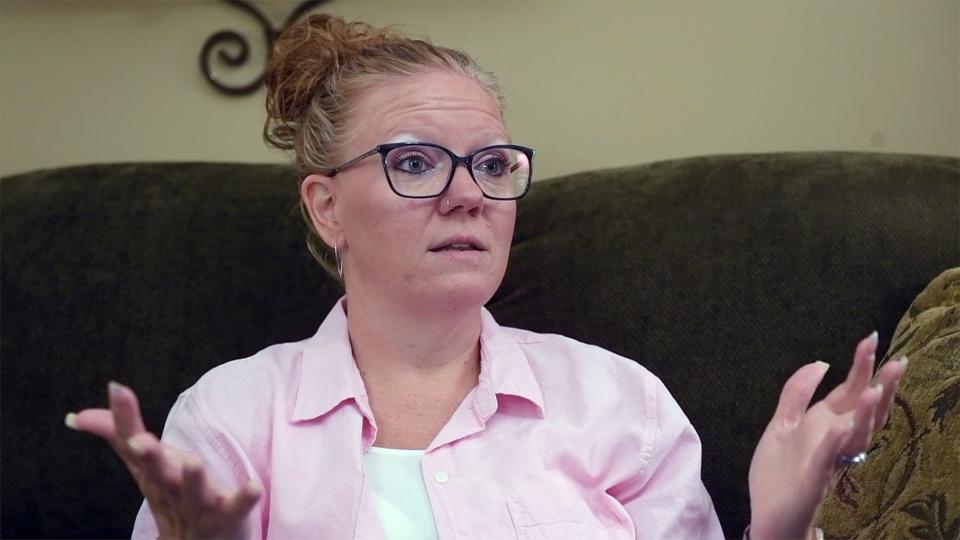
Genetic testing reveals Hunter has a higher risk of developing breast cancer
Hunter tells people her family is a genetic nightmare. Relatives have had various kinds of cancer: breast, thyroid, colon and prostate.
Her mother underwent the genetic testing and discovered that she has a mutation of the BARD1 gene, which puts her at an increased risk for breast cancer. A nurse explained to Hunter that she, too, would have a 50 percent chance of having it and would qualify for genetic testing. It would be covered by insurance.
Hunter decided to go for it.
"That's a real personal decision. Not everybody would choose to do that. I chose to do it because I wanted to know," she said. "Knowledge is power, and knowing it would also open the doors for things, like more surveillance or, you know, anything I would want to know."
She also thought of her daughters and sons and what the risk might be for them in the future.
Her testing came back positive for the BARD1 mutation as well.
Mammogram delivers a scare
Because of the results, Hunter began getting yearly mammograms at the age of 35.
After her first one, she was called back to the doctor's office. They wanted to do an MRI.
At the time, Hunter was overweight and couldn't fit into the machine. The radiologist told Hunter to come back the next day, wearing the tightest Spandex she could find, and the staff would find a way to make it work. The workers ripped out padding so she could get the test.
The results came back, and it didn't look right.
She met with WellSpan surgical oncologist, Dr. Dennis Johnson, who had treated her mother, and Hunter underwent a biopsy. It turned out to be a clump of dead cells, possibly mastitis from breastfeeding. It was not cancerous.
"I was grateful, but immediately after that I was like, 'oh no,' like this was too close to the edge. I'm not doing this anymore," she said. "... I've got a lifetime to live."
In 2015, she went to Dr. Johnson and told him she wanted a prophylactic mastectomy.
It's a surgery that's done on breasts that have not been affected by breast cancer, and it's a "risk-reducing" strategy, said Shanthi Sivendran, senior vice president of cancer care support with the American Cancer Society. It is often offered to patients who have inherited genetic mutations that puts them at higher risk for the disease.
The surgery also can be given to patients who have a significant family history of breast or ovarian cancer or those who were exposed to radiation therapy to their chest under the age of 30.
This type of surgery "is on the rise, increasing from 4% to 13% over a decade," she said. "However, not all women who have opted to have the surgery have the above risk factors."
The doctor told Hunter he was willing to do the surgery, but she weighed about 290 pounds and needed to become healthier first. Otherwise, he was putting her health at risk.
Hunter and her husband continued to grow their family. She underwent gastric bypass surgery and lost 120 pounds.
Meanwhile, she continued to get her yearly mammograms and had a few more scares. She decided she didn't want to put off the surgery any longer.
Surgery isn't for the faint of heart
In the summer of 2022, Hunter met with Johnson and told him she still wanted to undergo the nipple-sparing double mastectomy if he was willing to do it. He was.
"It was the right time for her," Johnson said during a recent interview.
Hunter said her background as a nurse helped to get her ready for the surgery, but nothing could have prepared her for the emotional impact of it.
"This surgery is not for the faint of heart at all," she said.
Initially, she thought her surgery and implants could be done at one time, but that's not how it turned out.
Hunter woke up from the surgery, still fuzzy, when she heard her husband say, "They couldn't do it." She didn't know what he meant until the next day when the medical team removed her bandages. Her chest was flat.
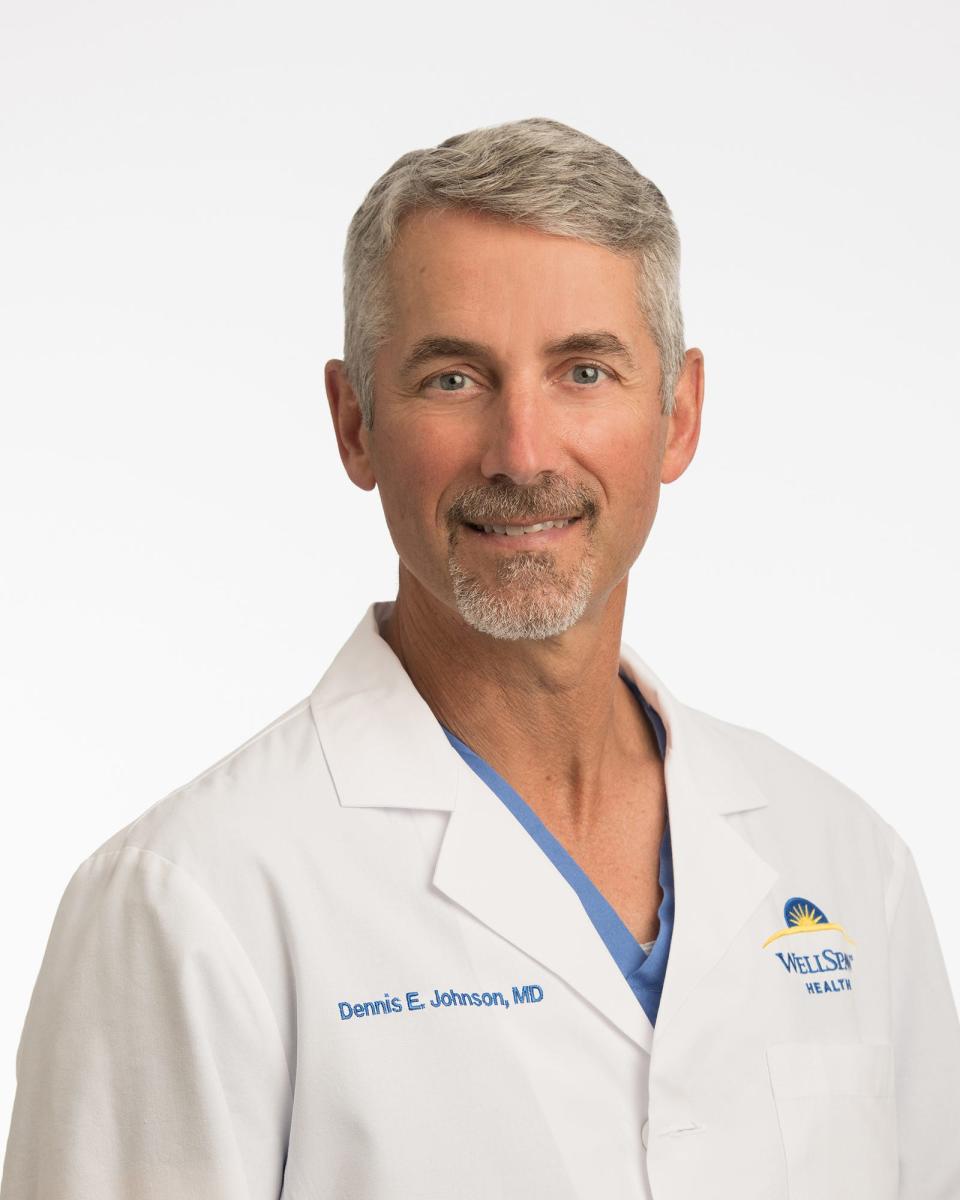
"I just remember looking down, and I was just like horrified," she said. "I thought, 'Oh my God, like what have I done?'"
The surgery to put in her breast implants would come months later. She had tissue expanders that were inflated over time to prepare her for the second surgery.
In the meantime, her family helped her as she recovered. Her husband, Tim, and oldest daughter assisted her in the shower because of the drains coming out of her body. Hunter teared up as she recalled her daughter, Nora, looking her in the eyes and saying, "Mom, you're so beautiful."
Beauty, Hunter said, is on the inside.
She didn't drive for eight to 10 weeks afterwards. Her mother helped to transport the children wherever they needed to go for months.
Hunter underwent the implant surgery earlier this year, and it was a breeze.
Before the surgery, Hunter said she had a 30 to 40 percent chance of developing breast cancer. Now her risk is 1 to 2 percent, her doctor said.
She remembers calling the women's imaging center and telling them she no longer had to come for mammograms. It felt like a full circle moment.
"With God's help, with Dr. Johnson's help, breast cancer is not going to be my story," she said.
The risks and benefits of going through the proceedure
Johnson said one of the things he tells patients is if they are going to sleep every night thinking about when they are going to get breast cancer, then maybe they need to consider more than surveillance.
Increased surveillance often involves getting a mammogram and MRI alternating every six months as well as seeing a breast specialist annually, he said.
Johnson said he has had patients in their 20s undergo the surgery.
Many of his patients who undergo this procedure have watched relatives endure cancer treatments, and they come to an informed decision for themselves, he said.
While the surgery can provide a survival benefit, it also can result in surgical complications and some psychosocial effects like changes in body image, decreased feelings of sexuality, decreased sexual pleasure and decreased self-esteem, Sivendran said.
Genetics are becoming a huge part of medical practice and oncology care, Johnson said.
WellSpan has partnered with Helix, the nation’s leading population genomics and viral surveillance company, and they are collecting blood samples and doing genetic analyzes on patients, according to Johnson and a news release.
If genetic abnormalities are found, doctors have the ability to anticipate the needs of patients going forward in terms of prevention of cancer or heart disease, Johnson said.
He added that patients who come in for a mammogram are given a risk-screening. Depending on their answers and their family history, they might be bumped into a higher risk category and be sent to have a discussion about their options.
Mother: Her daughter is happier a year later
Firestone said she has seen a difference in her daughter since the surgery a year ago.
Hunter doesn't dread going to the doctor anymore. She feels more confident that she doesn't have to do self breast exams, worrying that a problem might be lurking underneath.
Her daughter has always been supportive of patients who are going through breast and other cancers, but she is even more so now.
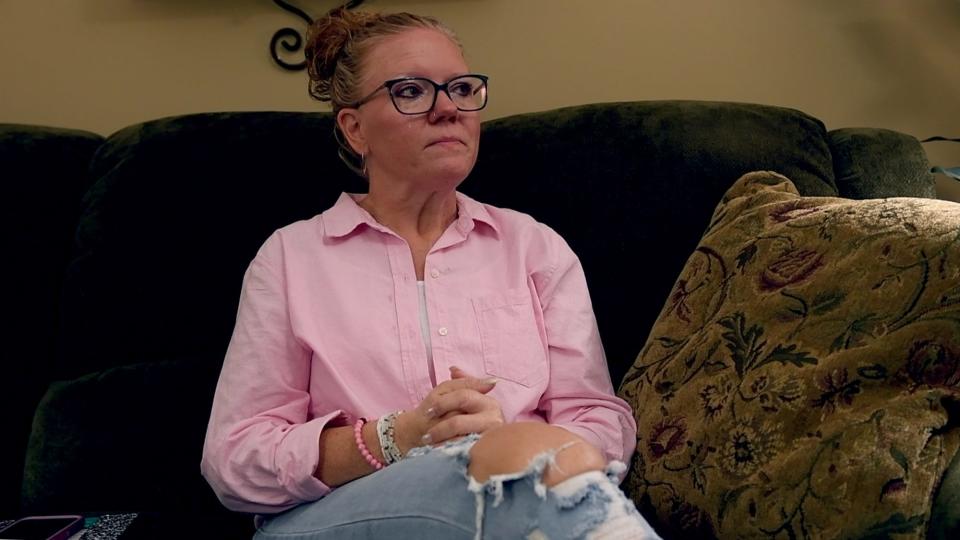
"Some of it you can prevent, and if you can, do it," Firestone said.
Tim Hunter said he, too, has noticed that his wife was relieved after the surgery.
While it wasn't easy, it has given them an opportunity to grow old together and watch their children grow up.
"This is something that has I think strengthened our marriage walking through this together," he said.
Hunter hopes to empower other women
Hunter said she did her own research and talked with her family and colleagues before making her decision to undergo the procedure.
She recommends that patients do their own research on reputable websites, such as National Institute of Health, Memorial Sloan Kettering Cancer Center, and Susan G. Komen, have a doctor they trust and a healthcare team that supports them.
Hunter also suggests potential patients make an appointment with a doctor to talk about the risks.
"When you make your decision, make sure you're confident and make sure that you surround yourself with people that have either been through it or people that will support you," she said.
This article originally appeared on York Daily Record: This York County PA woman took a preemptive step against breast cancer

